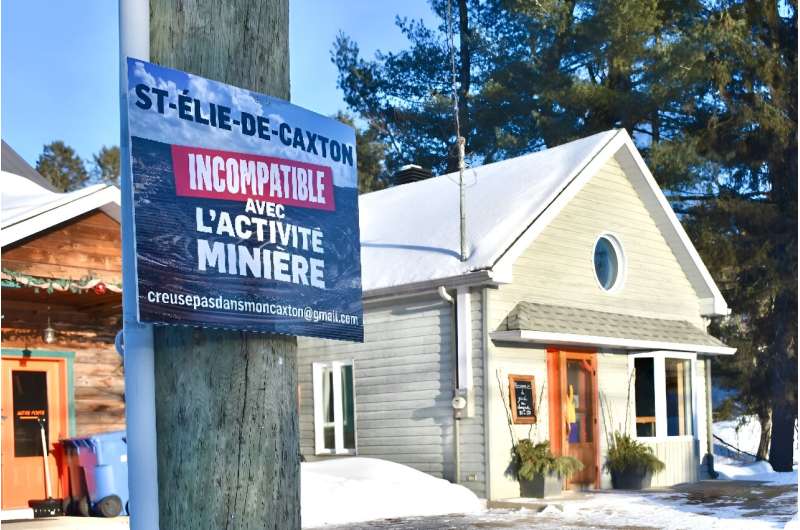Quebec, Canada’s mineral-rich province, finds itself at the center of a contentious debate over mining exploration and its impact on local communities. In towns like Saint-Elie-de-Caxton, residents are grappling with the prospect of their land being mined for critical minerals essential for modern technologies. This article delves into the tensions between residents and mining companies, explores the implications of Quebec’s mining boom, and examines the challenges faced by both sides in finding a balance between economic development and environmental conservation.
The Mining Boom in Quebec: In recent months, Quebec has witnessed a surge in mining exploration permits, driven by global demand for minerals like graphite, lithium, zinc, nickel, and cobalt. Tens of thousands of permits have been issued, sparking concerns among residents about the potential exploitation of their land for mining purposes. The ease with which mining claims can be staked, coupled with outdated regulations, has left many feeling vulnerable and powerless against the encroachment of mining activities on their doorstep.
Residents’ Concerns and Opposition: In towns like Saint-Elie-de-Caxton, residents are mobilizing against mining expansion, citing concerns about the environmental, social, and economic impacts of large-scale mining operations. Signs declaring “Don’t Dig in my Caxton” reflect the growing discontent and sense of urgency among locals. Homeowners, like Yvan Lafontaine, have found themselves at odds with mining companies after discovering that the subsoil beneath their properties does not belong to them. The prospect of losing control over their land and livelihoods has galvanized community resistance and prompted calls for stronger protections against mining encroachment.
Challenges and Calls for Reform: The surge in mining claims has raised questions about the adequacy of existing regulations and the need for comprehensive reforms to address community concerns. Critics argue that Quebec’s mining laws are antiquated and fail to adequately safeguard inhabited lands from exploitation. Julie Hamelin, a resident of Saint-Elie, describes the current system as reminiscent of the “Wild West,” highlighting the urgent need for modernization and stronger environmental protections. Despite assurances from the Quebec government about landowner consent, residents remain skeptical and continue to push for meaningful reforms to ensure their voices are heard.
Economic Imperatives and Environmental Impact: While mining companies tout the economic benefits of resource extraction, residents fear the irreversible consequences of large-scale mining projects on their communities and natural surroundings. Concerns about groundwater contamination, habitat destruction, and loss of biodiversity loom large, underscoring the complex trade-offs between economic development and environmental preservation. As Quebec seeks to position itself as a key player in the global battery supply chain, tensions between economic imperatives and environmental sustainability come to the fore, prompting a critical examination of the costs and benefits of resource extraction.
As the debate over Quebec’s mining boom intensifies, finding a path forward that balances economic development with environmental protection remains a pressing challenge. The Quebec government’s commitment to modernize mining laws is a step in the right direction, but meaningful engagement with affected communities and stakeholders is essential to ensure inclusive and sustainable decision-making. By fostering dialogue, promoting transparency, and prioritizing environmental stewardship, Quebec can chart a course toward responsible resource development that respects the rights and aspirations of its residents while safeguarding its natural heritage for future generations.
